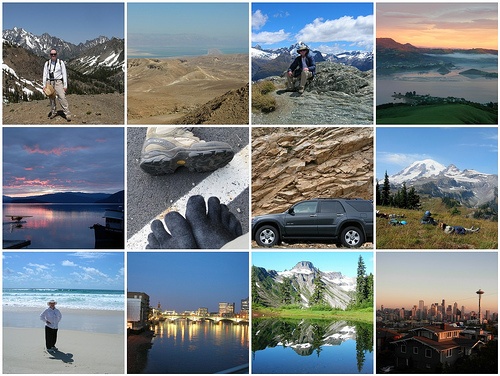
When traveling to a country outside the United States, it’s important to prepare yourself for unforeseen health issues.
Here are five things to consider before your journey begins.
Not Having the Proper Vaccinations
Image via Flickr by brewbooks
Before you head to a foreign country, check with a physician for any needed vaccinations.
According to Passport Health, some vaccines you may need include:
- Hepatitis – Mexico, South Africa, and Central America
- Flu Shot – Worldwide Travel
- Measles-Mumps-Rubella (MMR) – Western Europe/International Travel
- Meningococcal meningitis – Northern Africa and India
- Japanese encephalitis – Japan
- Rabies – Travel to every continent except Antarctica
- Tetanus / Diphtheria – Eastern Europe
- Typhoid Fever – Asia, Africa, and Latin America
- Yellow Fever – Africa, South America, Panama, Trinidad and Tobago
- Chicken Pox – Anyone who has not received the vaccine as a child
Let your doctor know what regions you will be visiting to help determine required vaccinations.
Not Having the Right Medications
It’s often hard to find medication when vacationing, especially in remote areas. Be sure to bring prescribed medications, over-the-counter (OTC) medicines, and a good first aid kit on your trip so you are prepared ahead of time.
Purchase the following at an online pharmacy like Canada drugs or at a local drug store.
- allergy medications
- antihistamines
- pain meds/aspirin
- cough and cold medicines
- hydrocortisone cream
- stomach medicine for indigestion and nausea
- sunscreen for both skin and lips
In your first aid kit, bring along:
- Band-Aids
- antibiotic cream
- sterile wipes
- Ace bandages
- tweezers
- thermometer
- scissors
Also, prior to traveling, ask your physician about recommended medicines for and high altitude ailments if you are going on a cruise or to a high altitude location. Popular prescription drugs for these conditions include promethazine and acetazolamide. Motion sickness patches are also very effective when out at sea.
Drinking Dirty Water
When traveling to places like Mexico or undeveloped countries, stick to drinking bottled water. In underdeveloped parts of the world, water may contain harmful parasites. If you drink contaminated water, some of the side effects may include nausea and diarrhea.
Medline Plus recommends avoiding tap water and using bottled water to brush your teeth. If you must rely on tap water, it’s best to boil the water before drinking.
Getting Nasty Bug Bites
According to Travmed.com, “Up to 65 percent of travelers to the developing world self-report a health problem during their trip” including nasty and painful insect bites.
Take precautionary measures. If you plan on hiking or camping, bring along DEET insect spray to prevent mosquito and bug bites. Steer clear of participating in high-energy activities. The carbon dioxide our bodies produce during high-energy activities attracts insects.
Some precautions to avoid insect bites or lessen their effects include:
- Using nets to cover sleeping areas
- Spraying the perimeters of sleeping tents and campgrounds
- Pack a cortisone spray in your first aid kit to stop itching
- Taking an antihistamine before going outdoors to lessen bug bite pain
- Wear pants and long-sleeved shirts when outdoors
- Ask your physician about pre-travel malaria medications
Eating Uncooked Food
Never eat uncooked foods or partially cooked foods as these foods may disagree with digestive systems. Uncooked foods also contain parasites that may require parasitic drug treatment.
FamilyDoctor.org recommends avoiding foods from street vendors, off-the-beaten path restaurants, and unpasteurized dairy products.
No one wants to become ill when traveling overseas. However, with these precautions, you’ll be better prepared for simple ailments and able to prevent the more severe.
